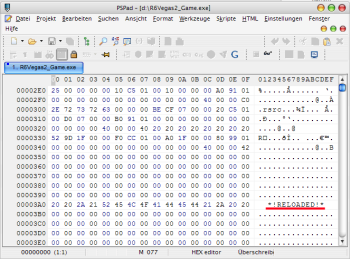The PC gaming industry likes to blame piracy for many of its ills, but it's clear that no one has found a cure-all for this particular disease. Various forms of DRM added to the retail versions of PC games are—at the very least—annoying for the gamer who bought a boxed or digital copy of a game. At the very worst, some methods of DRM can make the game unplayable. Ubisoft ran into such a glitch with the CD-check built into the PC version of Rainbow Six Vegas 2; users who downloaded the game from an official source didn't have a disc to pass the check, causing a new patch to break legally downloaded versions of the game. Ubisoft had a novel—not to mention cheap—way to fix this: a crack that allows the game to play without a disc in the drive. The issue? The crack came from the "warez" group Reloaded, with no attribution or notice that third-party code was used to fix the DRM issue.
While developers and publishers would like to think that the DRM included in PC games goes a long way towards combating piracy, with almost every big-name release, a full version of the game—along with the needed crack to be able to play the pirated version—is released to the expected places online. For those of us who buy PC games legally, downloading and using these cracks is sometimes the only way to get the games to run correctly on our systems or to make playing the game a more convenient experience. The fact is that illegally-obtained games often run better than their legal counterparts, and this fact is in no way lost to the hardcore gamers who wish to continue to support the industry, but feel punished for paying for their games. When the legal version feels crippled, and the illegal copies are easier to run, something is very, very wrong.
The UK Community Manager had the expected bland response to users outraged at the company using ostensibly illegal DRM-circumvention techniques on their own products as a way to fix its mistakes. "The file was removed from the site over a week ago now, and the matter is being thoroughly investigated by senior tech support managers here at Ubisoft... Needless to say we do not support or condone copy protection circumvention methods like this, and this particular incident is in direct conflict with Ubisoft's policies," Ubi.Vigil posted to the official forums.
 The game broke, and the easiest way to fix it was to turn to the very pirates that the PC gaming industry vilifies at every opportunity. The uneasy truth is that DRM is an elaborate way to say something is being done to combat piracy, and the publishers have long relied on the piracy groups to "fix" their games that ship infected with these often-invasive programs. Anyone with even a passing interest in technology knows that technological measures do little to stop hacking by determined users: new PSP firmware is cracked in hours, games are cracked and leaked before the retail versions hit the shelves, and anyone who reads Apple blogs knows how to jailbreak their iPhones. The harder companies try to lock their products down, the more likely they are to test the limits of legitimate customers who look on enviously as the pirates enjoy a superior user experience.
The game broke, and the easiest way to fix it was to turn to the very pirates that the PC gaming industry vilifies at every opportunity. The uneasy truth is that DRM is an elaborate way to say something is being done to combat piracy, and the publishers have long relied on the piracy groups to "fix" their games that ship infected with these often-invasive programs. Anyone with even a passing interest in technology knows that technological measures do little to stop hacking by determined users: new PSP firmware is cracked in hours, games are cracked and leaked before the retail versions hit the shelves, and anyone who reads Apple blogs knows how to jailbreak their iPhones. The harder companies try to lock their products down, the more likely they are to test the limits of legitimate customers who look on enviously as the pirates enjoy a superior user experience.
It's unlikely Ubisoft has learned any lesson, and we doubt anyone will be punished for this public-relations gaffe, but it's just another piece of data pointing to the utter uselessness of most modern DRM schemes. When even the publishers realize that the pirates are the only people who know how to make their games work better, we're left wondering if everyone in the industry finally sees PC gaming DRM as the naked emperor it so obviously is.
reader comments
5